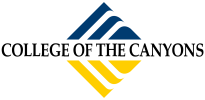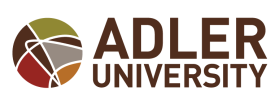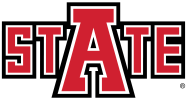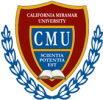
Study In USA
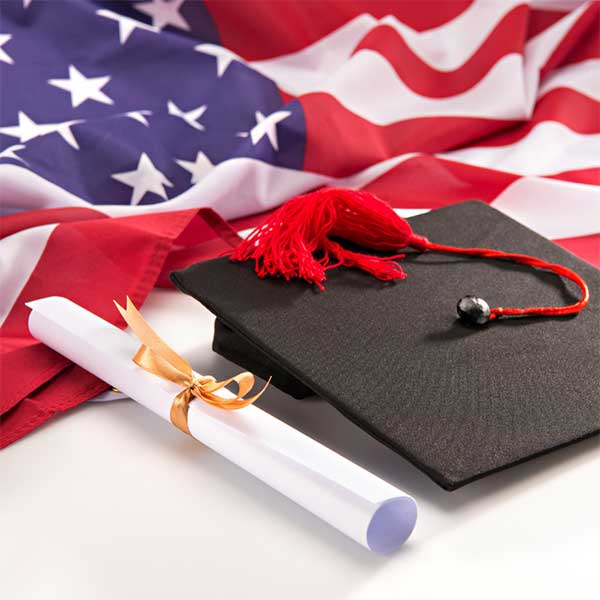
The United States offers a world-class education system that is highly respected around the globe. Studying in the US is a life-changing experience that provides top-notch education and immerses you in a diverse and dynamic culture. From prestigious universities to community colleges, the US has various educational institutions catering to every academic and career interest. Students can also benefit from extensive research opportunities, innovative teaching methods, and access to cutting-edge technology. Moreover, studying in the US can enhance your career prospects and open up doors to new opportunities. With a wealth of resources, excellent support services, and a welcoming environment, the US is the ideal destination for students who want to broaden their horizons and reach their full potential.
Why do I need to study in USA?

World-class education
The USA has some of the world’s top-ranked universities and colleges offering a diverse range of programs, including STEM, arts, business, and humanities.
Research opportunities
American universities are known for their cutting-edge research facilities, providing students with ample opportunities to conduct research and gain hands-on experience.
Career opportunities
The USA offers excellent job opportunities for graduates in various fields. Studying in the USA can give you an edge over others in the job market.
Cultural diversity
The USA is a melting pot of different cultures and backgrounds, providing international students with a unique opportunity to experience new cultures and make new friends.
English language proficiency
Studying in the USA can help improve your English language proficiency, which can be an asset in the global job market.
Innovation and entrepreneurship
The USA is known for its entrepreneurial spirit and innovation, with many start-ups and tech companies emerging from American universities.
Flexible education system
The American education system is flexible, allowing students to choose their courses and tailor their education to their interests and goals.
Who can study in the USA as an international student?
International students who meet certain requirements can study in the USA. These requirements typically include:
- Having a valid passport
- Being accepted into a SEVP-approved school or program
- Demonstrating sufficient financial resources to cover tuition, living expenses, and other costs
- Meeting any language proficiency requirements set by the school or program
- Obtaining a student visa (F-1 or M-1) from a US embassy or consulate
What are the requirements to get a student visa to study in the USA?
To obtain a student visa to study in the USA, international students must fulfill the following requirements:
- Receive acceptance from a SEVP-approved school and receive a Form I-20.
- Pay the SEVIS fee.
- Complete the DS-160 visa application form.
- Schedule a visa interview appointment at the US embassy or consulate in your home country.
- Attend the visa interview and provide the required documents, including the I-20 form, DS-160 confirmation page, passport, and financial documents showing the ability to cover tuition and living expenses in the US.
- Prove ties to your home country, such as a job offer or property ownership, to show that you plan to return home after your studies.
During an interview for a USA student visa, an officer may ask various questions to determine the applicant’s eligibility. Some possible questions could include:
- What is the purpose of your trip to the USA?
- Which school or university will you be attending, and what will you be studying?
- Why did you choose this particular school or program?
- How did you learn about this school or program?
- What are your academic qualifications, and how do they prepare you for this program?
- Have you applied to any other schools in the USA or elsewhere?
- Have you received any scholarships or financial aid for your studies?
- What is your plan after you complete your studies?
- Do you have any relatives or friends in the USA?
- What ties do you have to your home country that will ensure your return after your studies?
These are just a few examples of the types of questions that may be asked during a USA student visa interview. The specific questions may vary depending on the applicant’s circumstances and the interviewing officer’s discretion.
The cost of studying in the USA can vary widely depending on the school, program, location, and other factors. Generally, tuition fees for international students at public universities can range from $10,000 to $40,000 per year, while tuition fees at private universities can be even higher, ranging from $30,000 to $60,000 per year. In addition to tuition fees, international students must also consider other costs such as accommodation, transportation, textbooks, health insurance, and personal expenses. These additional costs can vary depending on the location and lifestyle of the student, but it is recommended to budget an additional $10,000 to $15,000 per year.
Yes, international students in the USA can work part-time on campus for up to 20 hours per week while school is in session and full-time during school breaks. They can also apply for off-campus work authorization after their first year of study, usually in the form of Optional Practical Training (OPT) or Curricular Practical Training (CPT). However, it’s important to note that employment opportunities may be limited and students must adhere to the specific regulations and restrictions surrounding their visa status.
F1 and M1 visas are both non-immigrant visas that allow foreigners to come to the United States for educational or vocational purposes, respectively. However, there are some key differences between the two visa types:
- Purpose: F1 visas are for academic study, while M1 visas are for vocational or non-academic study.
- Duration: F1 visas can be granted for the duration of an academic program, while M1 visas have a maximum duration of one year.
- Employment: F1 visa holders are allowed to work part-time on-campus, while M1 visa holders are only allowed to work on-campus for practical training related to their studies.
- Change of status: F1 visa holders may be eligible to change their status to a different non-immigrant visa or to an immigrant visa, while M1 visa holders generally are not eligible to change their status to any other visa category.
- Spouses and dependents: F1 visa holders may bring their spouses and children as dependents on an F2 visa, while M1 visa holders may bring their spouses and children as dependents on an M2 visa.
If you are applying for an F-1 student visa to study in the United States, your spouse can apply for an F-2 dependent visa. F-2 visa holders are allowed to live in the United States but not work or engage in full-time study.
When you apply for your F-1 student visa, you must provide evidence that you can financially support yourself and any dependents, including your spouse, while studying in the United States. This can include proof of income or savings, a scholarship, or a loan.
It’s important to note that the F-2 visa does not allow your spouse to work in the United States, so you must ensure you have enough financial resources to support both of you during your stay. Additionally, if you plan to travel outside of the United States during your studies, your spouse must obtain a separate F-2 visa stamp in their passport before returning to the United States.
Some Important
Terms to Remember
I20
An I-20 is a Certificate of Eligibility for Nonimmigrant Student Status. It is a document issued by a school in the United States to an international student that confirms the student’s admission and outlines the terms and conditions of their visa status. The I-20 is required for international students to apply for an F-1 student visa or to maintain their legal status while studying in the United States. It contains important information such as the student’s program start and end dates, the estimated cost of attendance, and the student’s financial support.

OPT
OPT stands for Optional Practical Training, which is a program that allows international students in the United States to work in their field of study after completing their degree. OPT is available to students on F-1 visas who have completed at least one academic year of study in the US. OPT allows students to gain practical work experience and apply their knowledge and skills in a professional setting. There are two types of OPT: pre-completion OPT, which allows students to work up to 20 hours per week while still enrolled in school, and post-completion OPT, which allows students to work full-time for up to 12 months after completing their degree. Students in certain fields may be eligible for a 24-month extension of their post-completion OPT period. OPT is an important opportunity for international students to gain valuable work experience and enhance their career prospects.

Sevis Fee
SEVIS (Student and Exchange Visitor Information System) fee is a fee that international students, exchange visitors, and their dependents must pay to the U.S. government. The fee is required to cover the costs of administering the SEVIS program, which tracks and monitors the status and activities of international students and exchange visitors while they are in the United States. The SEVIS fee must be paid before applying for a visa or entering the United States, and is a one-time fee, unless a student or exchange visitor changes their visa status or their SEVIS record requires corrections or updates.

Embassy Appointment
An appointment at a US embassy is typically required for any non-US citizen who wishes to apply for a visa to enter the United States. This includes student visas, tourist visas, and business visas. To schedule an appointment at a US embassy, you will typically need to visit the embassy’s website and follow the instructions for scheduling an appointment. You may need to provide personal information, pay a fee, and schedule an interview at the embassy. During the interview, you will typically be asked questions about your background, travel plans, and other relevant information to determine whether you are eligible for a visa to enter the United States.
F1 Visa
An F1 visa is a non-immigrant student visa that allows foreign nationals to pursue academic studies and/or language training programs in the United States. The F1 visa is issued by the U.S. Department of State to international students who have been accepted by a Student and Exchange Visitor Program (SEVP)-approved school in the U.S. The F1 visa holder must maintain a full course of study and make progress towards completing their degree program in order to maintain their status in the U.S. Additionally, F1 visa holders may be eligible for certain employment opportunities on campus or with authorized off-campus employers through Curricular Practical Training (CPT) and Optional Practical Training (OPT) programs.

F2 Visa
The F-2 visa is a nonimmigrant visa that allows dependents of F-1 visa holders to enter and stay in the United States. F-2 visas are issued to spouses and unmarried children under the age of 21. F-2 visa holders are not allowed to work but may attend school part-time. They are also allowed to leave and re-enter the United States as long as their F-1 visa-holder spouse or parent maintains their status.

CPT
CPT stands for Curricular Practical Training, which is a program that allows F-1 students in the United States to gain practical work experience related to their field of study. CPT is designed to provide students with the opportunity to apply their classroom learning to real-world situations and to gain practical skills and knowledge that will help them in their future careers. CPT can be part-time or full-time, and it can be paid or unpaid. To be eligible for CPT, students must have been enrolled full-time for at least one academic year and must have a job offer related to their field of study.

DS-160
DS-160 is an online non-immigrant visa application form that is required for most temporary US visas, including student visas (F-1 visa). The form includes questions about the applicant’s personal information, education, employment history, travel history, and purpose of travel. The information provided in the DS-160 form is used by the US embassy or consulate to determine the applicant’s eligibility for the visa. The form must be completed and submitted online before the visa interview appointment.

